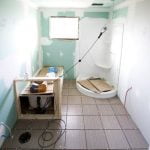Are you wondering how to find a good contractor for home improvement? The success of any home improvement project heavily relies on hiring a reputable and skilled contractor. From small renovations to major remodels, finding the right contractor can make all the difference in the outcome of your project. In this article, we will explore the crucial steps and considerations in finding a good contractor for your home improvement needs.
Hiring a good contractor is vital because they play a significant role in the success of your home improvement project. Not only are they responsible for delivering high-quality workmanship, but they also oversee the entire construction process, ensuring that everything is completed according to plan and within budget. A good contractor can bring expertise, experience, and efficiency to the table, making them an invaluable asset throughout the project.
In this guide, we will walk you through the essential steps of finding a reliable contractor for your home improvement project. From researching potential candidates to checking credentials and references, meeting and interviewing contractors, getting detailed estimates and contracts, understanding payment and scheduling, communication and collaboration, as well as handling issues and disputes – we’ve got you covered.
By following these guidelines, you can be better equipped to make informed decisions when choosing a contractor for your next home improvement endeavor.
Researching Potential Contractors
When it comes to home improvement projects, finding a good contractor is essential for the success of the undertaking. Whether you are renovating your kitchen, remodeling your bathroom, or completing a full-scale home renovation, the quality of the contractor you hire will significantly impact the outcome of the project. The question then becomes: how to find a good contractor for your home improvement needs? Researching potential contractors is the first crucial step in this process.
Tips for Starting Your Search
One of the best ways to start your search for potential contractors is by asking for recommendations from friends, family, and colleagues who have had positive experiences with contractors in the past. Additionally, utilizing online resources such as review websites and social media platforms can also provide valuable insights into the reputations of different contractors. By compiling a list of potential candidates based on recommendations and reviews, you can begin to narrow down your options.
Utilizing Online Resources and Reviews
The internet has become an invaluable tool in the search for reputable contractors. Websites like Yelp, Angie’s List, and Houzz allow homeowners to read reviews and ratings for various contractors in their area. It is important to carefully read through these reviews, paying attention to both positive and negative feedback from previous clients. Look for patterns in the reviews that highlight consistent strengths or weaknesses of each contractor.
Seeking Referrals and Recommendations
In addition to online resources, don’t underestimate the power of personal referrals from trusted sources. Ask friends, family members, neighbors, and coworkers if they have any recommendations for reliable contractors they have worked with in the past. Getting firsthand accounts of others’ experiences can give you valuable insight into what it might be like to work with a particular contractor.
By following these tips for researching potential contractors and utilizing both online resources and personal recommendations, you can create a comprehensive list of candidates to consider for your home improvement project. Taking the time to research and compile a list will set you on the right path towards finding a good contractor that meets your specific needs.
Checking Credentials and References
When it comes to finding a good contractor for your home improvement project, checking credentials and references is an essential step in the process. This ensures that you are hiring a reputable and qualified professional who will deliver high-quality work. Here are some guidelines for verifying the credentials, licenses, and insurance of potential contractors.
Verifying Credentials
Start by requesting the contractor’s license number and confirming its validity with the appropriate licensing board in your state. Additionally, check if the contractor holds any relevant certifications or memberships in professional organizations related to their field. These credentials demonstrate their commitment to excellence and ongoing education in their industry.
Contacting References and Viewing Past Work
Ask potential contractors for a list of references from past clients. Reach out to these references to inquire about their experience working with the contractor, including the quality of work, adherence to timelines, and overall professionalism. It’s also advisable to ask the contractor for examples of their past projects or portfolios, allowing you to assess the quality of their craftsmanship firsthand.
By following these steps, you can gain valuable insights into the reputation and track record of each potential contractor. This information will help you make an informed decision when selecting the right professional for your home improvement project. Remember that thorough research and diligence in checking credentials and references can ultimately save you time, money, and potential headaches down the road.
Ensuring that your chosen contractor has reliable credentials and positive references is crucial for a successful home improvement project. This phase sets the foundation for a collaborative partnership built on trust and confidence in their abilities. Taking the time to verify these aspects demonstrates your commitment to finding a contractor who will deliver exceptional results while upholding professional standards within the industry.
Meeting and Interviewing Contractors
When it comes to embarking on a home improvement project, finding the right contractor is crucial for the success of the endeavor. But how to find a good contractor for your home improvement needs? Meeting and interviewing potential contractors is a vital step in this process. Here are some tips to keep in mind when meeting and interviewing contractors:
1. Set up meetings with multiple contractors: Before making a decision, it’s important to meet with several potential contractors to discuss your project. Meeting them in person will give you a better sense of their professionalism, communication skills, and overall demeanor.
2. Prepare a list of questions: Make sure to come prepared with a list of questions to ask each contractor during the interview. Inquire about their experience with similar projects, their approach to problem-solving, and how they handle communication with clients.
3. Assess their portfolio: During the meeting, ask the contractor to provide examples of past projects similar to yours. Reviewing their portfolio will give you an idea of the quality of their work and whether their style aligns with your vision for your home improvement project.
Meeting and interviewing potential contractors is an essential part of the process when searching for the right fit for your home improvement project. By taking the time to ask important questions and assess their experience and work samples, you can make an informed decision that will set your project up for success.
Getting Detailed Estimates and Contracts
When it comes to starting a home improvement project, finding a good contractor is crucial for the success of the endeavor. However, it is equally important to ensure that you have clear and detailed estimates from each potential contractor before making a decision. Here are some tips on how to get detailed estimates and contracts from contractors:
1. Request Detailed Estimates: When reaching out to potential contractors, ask for detailed written estimates for the entire scope of the project. This should include the cost of materials, labor, permits, and any other expenses related to the project. Having this information in writing will help you compare and evaluate each contractor’s proposal.
2. Reviewing and Comparing Estimates: Once you have received estimates from different contractors, take the time to carefully review and compare them. Look for any discrepancies or items that may not be included in one estimate but are present in another. This will help you understand what you are paying for and make an informed decision.
3. Negotiating Terms: After reviewing the estimates, do not hesitate to negotiate terms with the contractors. This could involve adjusting the payment schedule, clarifying specific details of the project, or discussing any concerns you may have regarding the estimates. Open communication during this stage can lead to a more transparent and fair contract.
Furthermore, it is essential to get everything in writing by drafting a formal contract once you have selected a contractor. The contract should outline all aspects of the project including timelines, payment schedules, scope of work, materials used, warranties, and any other relevant terms and conditions.
By following these steps for obtaining detailed estimates and contracts from potential contractors during your search for home improvement services, you can ensure that both parties are aligned in their expectations before beginning the project ultimately leading to a successful partnership.
Understanding Payment and Scheduling
When hiring a contractor for a home improvement project, it is crucial to have a clear understanding of payment schedules and project timelines. One of the most important aspects of the entire process is determining how and when payments will be made, as well as establishing a realistic schedule for the completion of the work. This section will provide guidance on navigating these important aspects of the contractor-client relationship.
The first step in understanding payment and scheduling is to discuss these matters with potential contractors during the initial meetings. It’s essential to communicate your expectations regarding payment installments and the overall timeline for the project. A reputable contractor should be willing to work with you to find a payment schedule that is fair and reasonable for both parties, as well as set realistic deadlines for the completion of different stages of the project.
In addition, it is important to establish clear expectations in writing before any work begins. A detailed contract should outline the payment schedule, including down payments, progress payments, and final payments. This contract should also include a timeline for each phase of the project, ensuring that both parties are aligned on when specific milestones will be completed. By having these details clearly defined in a contract, it can help prevent misunderstandings or disputes down the line.
Through careful consideration and open communication about payment and scheduling details, homeowners can ensure that they are working with a trustworthy contractor who will deliver quality work in a timely manner. By following these guidelines, homeowners can navigate this aspect of their home improvement project with confidence and peace of mind.
Communication and Collaboration
When embarking on a home improvement project, effective communication and collaboration with the contractor are crucial. By maintaining open lines of communication, you can ensure that both parties are aligned on the project’s goals, timeline, and budget. Additionally, collaboration allows for a more productive and smooth working relationship between you and the contractor. Here are some tips on how to find a good contractor for home improvement projects by focusing on communication and collaboration.
Firstly, it is important to establish clear expectations from the beginning. Clearly communicate your vision for the project, your non-negotiables, and any specific requirements you may have. A good contractor will listen attentively to your needs and preferences and work with you to achieve them.
Regular check-ins and updates are essential throughout the project. Schedule periodic meetings or calls with the contractor to discuss the progress, address any concerns, or make necessary adjustments. This ensures that any potential issues or misunderstandings can be addressed in a timely manner.
Mutual respect is key in fostering a collaborative environment. Treat your contractor with respect and professionalism, just as you expect to be treated in return. Building a positive working relationship based on mutual respect will contribute to a more successful outcome for your home improvement project.
In summary, effective communication and collaboration with your contractor play an integral role in the success of your home improvement project. By setting clear expectations, maintaining open communication channels, fostering mutual respect, and addressing any issues promptly, you can develop a strong partnership with your contractor that will ultimately lead to a successful outcome.
| Tip | Description |
|---|---|
| Establish Clear Expectations | Communicate your vision and requirements clearly from the start. |
| Regular Check-Ins | Schedule periodic meetings to discuss progress and address concerns. |
| Mutual Respect | Treat your contractor with respect to foster a positive working relationship. |
Handling Issues and Disputes
When it comes to home improvement projects, issues and disputes with contractors can sometimes arise, and knowing how to handle them effectively is crucial. No matter how diligent the research and how thorough the interviewing process, unforeseen circumstances or misunderstandings can occur during the course of a project. This section will provide advice for addressing potential issues and disputes with the contractor, as well as resources for resolving conflicts.
If issues or disputes do arise during a home improvement project, it is essential to address them promptly and professionally. Open communication with the contractor is key in these situations, as discussing concerns openly and transparently can often lead to a resolution. It’s also important to document all communication regarding the issue in case it becomes necessary to reference later on.
In cases where disagreements cannot be resolved through direct communication, there are resources available for homeowners facing contractual disputes with a contractor. Many states have licensing boards or consumer protection agencies that can provide guidance and assistance in resolving conflicts. Understanding your legal rights as a homeowner is also crucial in situations where professional intervention may be needed.
| Issue Resolution Resources | Description |
|---|---|
| Licensing Boards | State agencies that oversee contractor licensing and can provide guidance in resolving disputes. |
| Consumer Protection Agencies | Organizations that offer support and assistance to consumers facing issues with contractors or service providers. |
Conclusion
In conclusion, finding a good contractor for your home improvement project is crucial to its success. By following the guidelines outlined in this article, you can ensure that you make an informed decision when selecting a contractor.
Researching potential contractors, checking credentials and references, and meeting and interviewing them are all important steps in finding the right fit for your project. Once you have chosen a contractor, getting detailed estimates and contracts, understanding payment and scheduling, and maintaining open communication throughout the project are essential for a successful partnership.
It is important to remember that the process of finding a reputable contractor may take time and effort, but it is well worth it in the end. A skilled and trustworthy contractor can make a significant difference in the outcome of your home improvement project. By prioritizing communication and collaboration with your contractor, addressing any issues or disputes promptly, and celebrating the successful partnership upon completion of the project, you can ensure that you have made the right choice.
Ultimately, hiring a good contractor is not only about completing a successful home improvement project but also about building a strong partnership with someone who shares your vision for your home. Remember that taking the time to find the right fit for your project will ultimately save you time, money, and frustration in the long run.
Investing in a quality partnership with a reliable contractor will result in a finished project that both meets your expectations and adds value to your home.
Frequently Asked Questions
How Do I Choose a Reliable Contractor?
Choosing a reliable contractor involves thorough research and due diligence. Look for contractors with a good reputation, proper licensing, insurance, and solid experience in the type of project you need. Ask for referrals and check online reviews to gauge their reliability.
How Do I Choose a Project Contractor?
When choosing a project contractor, consider their expertise in the specific type of project you have in mind. Look for contractors who have successfully completed similar projects, and ask for references to verify their quality of work and professionalism.
How to Negotiate With a Home Contractor?
Negotiating with a home contractor involves clear communication and setting expectations from the start. Clearly outline the scope of work, establish a realistic budget, and discuss timelines. Get multiple bids to use as leverage in negotiations, and make sure everything is put in writing before starting the project.

I’m thrilled to have you here as a part of the Remodeling Top community. This is where my journey as an architect and remodeling enthusiast intersects with your passion for transforming houses into dream homes.





